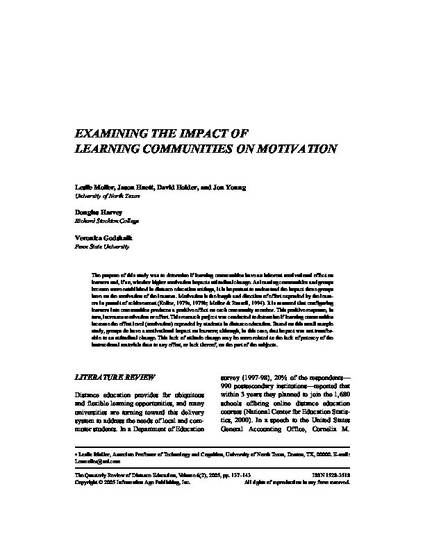
The purpose of this study was to determine if learning communities have an inherent motivational effect on learners and, if so, whether higher motivation impacts attitudinal change. As learning communities and groups become more established in distance education settings, it is important to understand the impact these groups have on the motivation of the learners. Motivation is the length and direction of effort expended by the learners in pursuit of achievement (Keller, 1979a, 1979b; Moller & Russell, 1994). It is assumed that configuring learners into communities produces a positive effect on each community member. This positive response, in turn, increases motivation or effort. This research project was conducted to determine if learning communities increase the effort level (motivation) expended by students in distance education. Based on this small sample study, groups do have a motivational impact on learners; although, in this case, that impact was not transferable to an attitudinal change. This lack of attitude change may be more related to the lack of potency of the instructional materials than to any effort, or lack thereof, on the part of the subjects.
Available at: http://works.bepress.com/david_holder/1/
